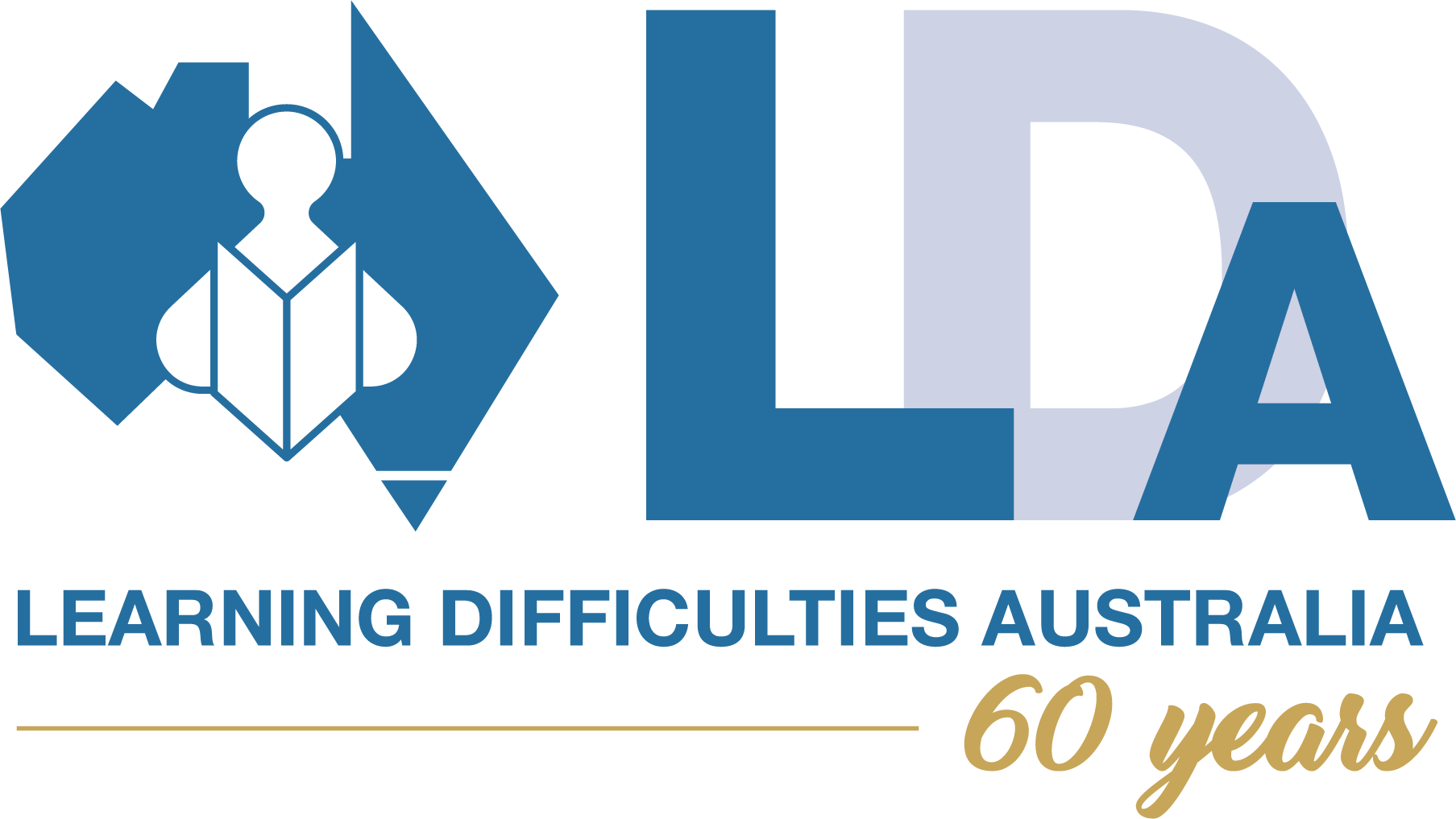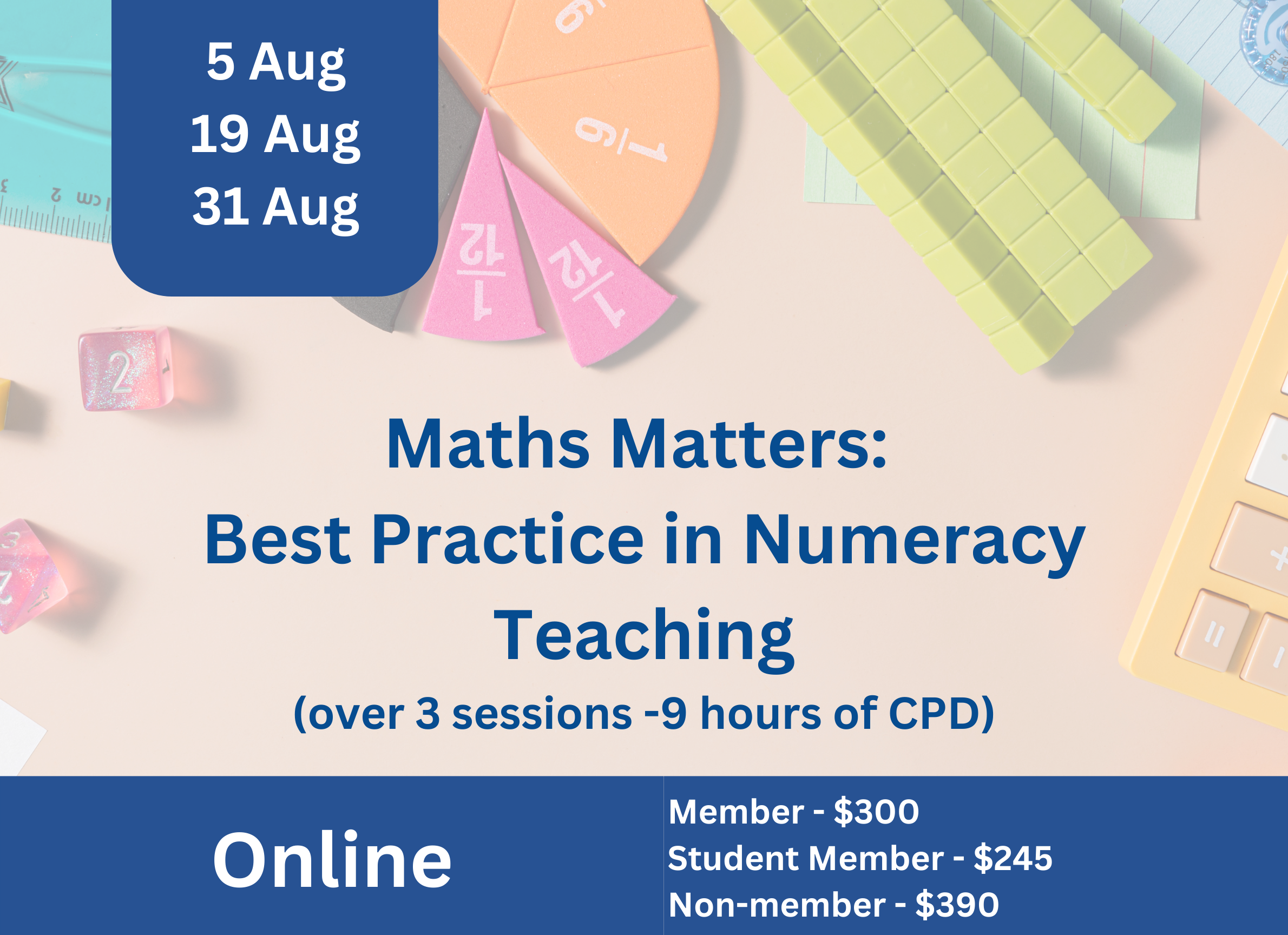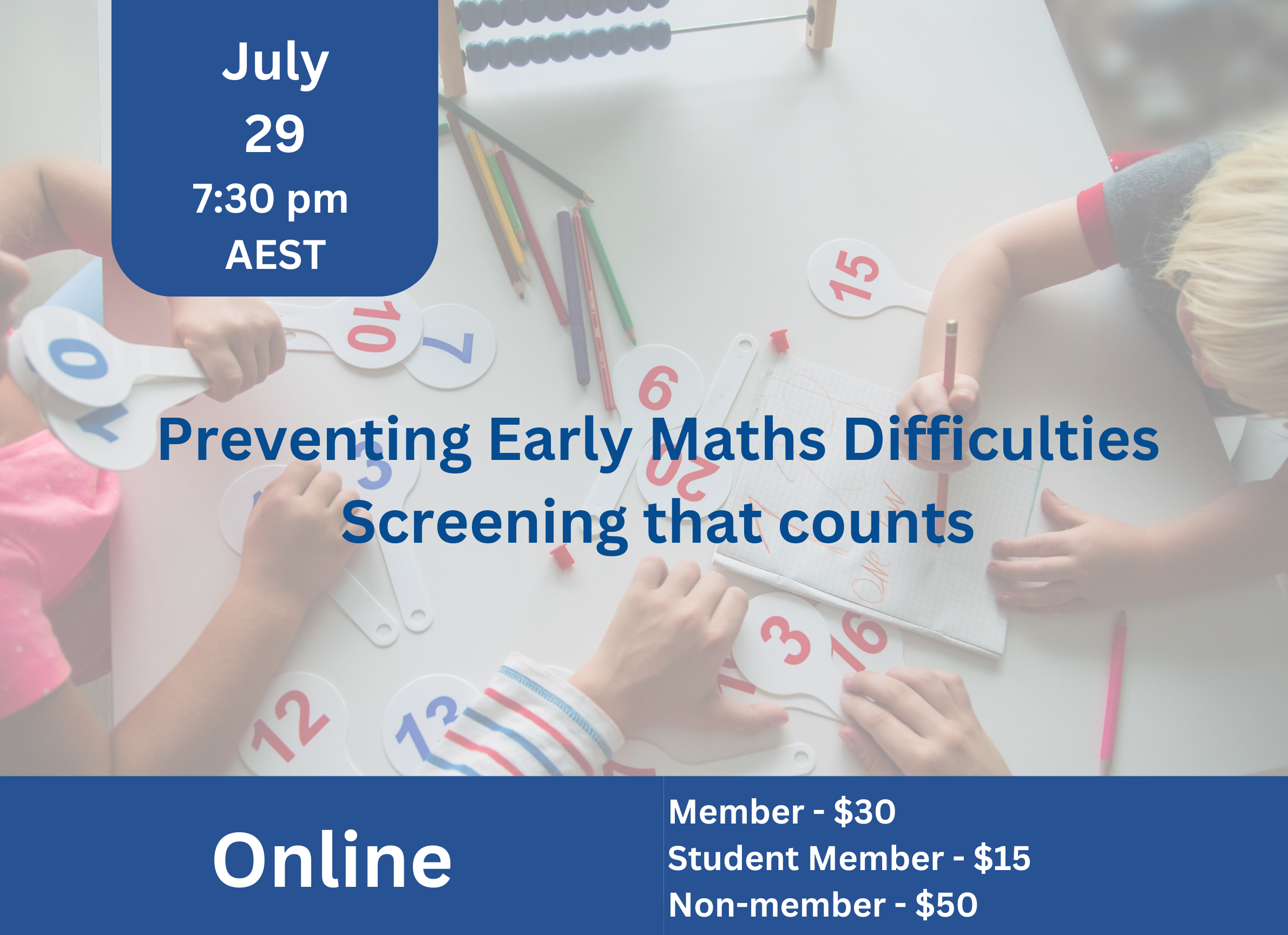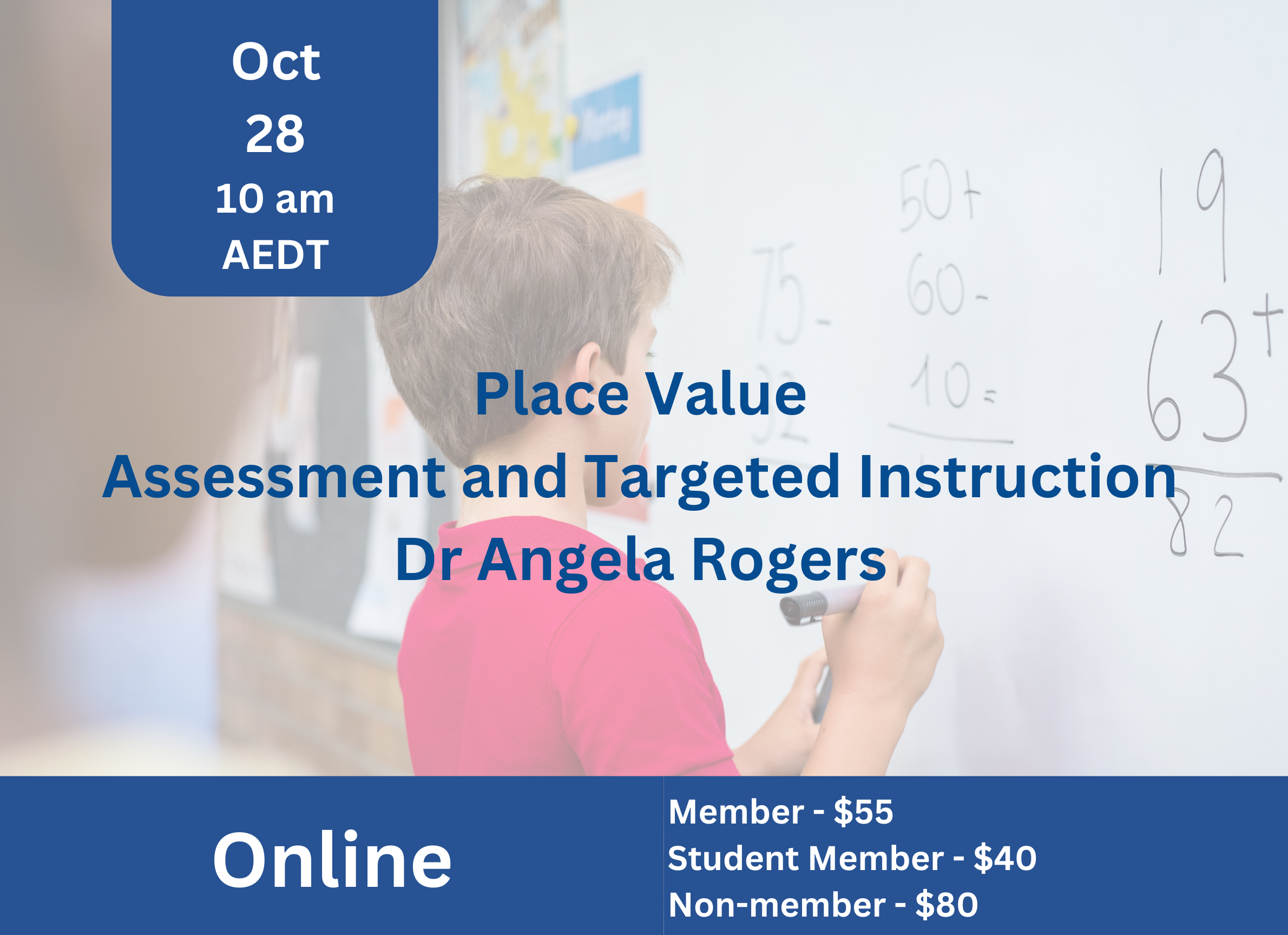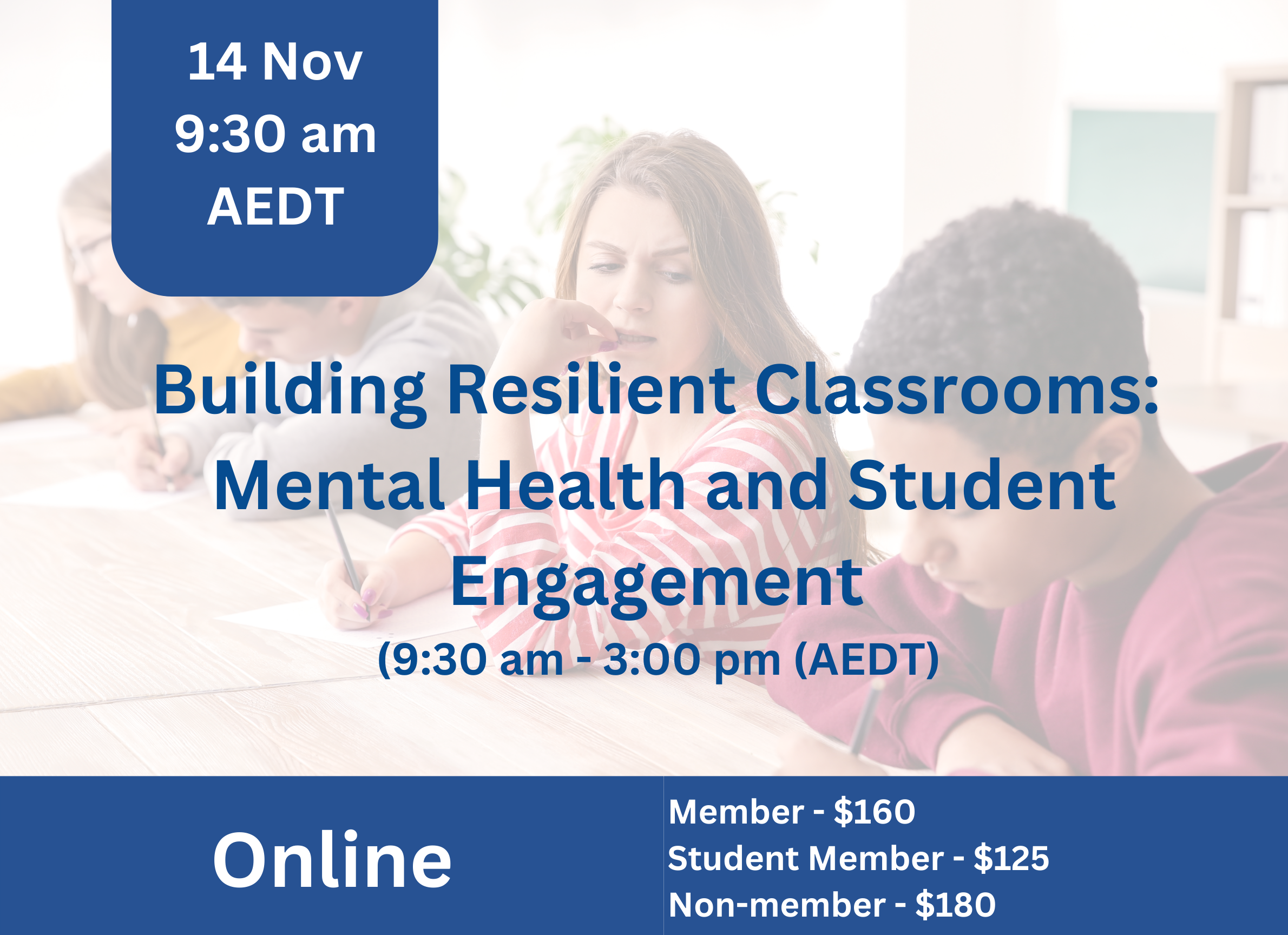Join us for our maths course which will feature a range of presenters such as Steve Chinn, Sarah Powell and Liana McCurry over three sessions on the following dates:
Session 1: Monday 5th August 2024, 6 pm – 9 pm AEST (Melbourne Time)
Session 2: Monday 19th August 2024, 6 pm – 9 pm AEST (Melbourne Time)
Session 3: Saturday 31st August 2024, 9:30 – 12:30 AEST (Melbourne Time)
**This webinar will be recorded and available for one month after the event**
Cost:
LDA Member: $300
LDA Student Member – $245
Non-Member – $390
Speakers
Our presenters include:
- Dr Steve Chinn
- Liana McCurry
- Reid Smith
- Brydon O’Neill Guy
- Sarah Powell
- Dr Ange Rogers
Course Schedule
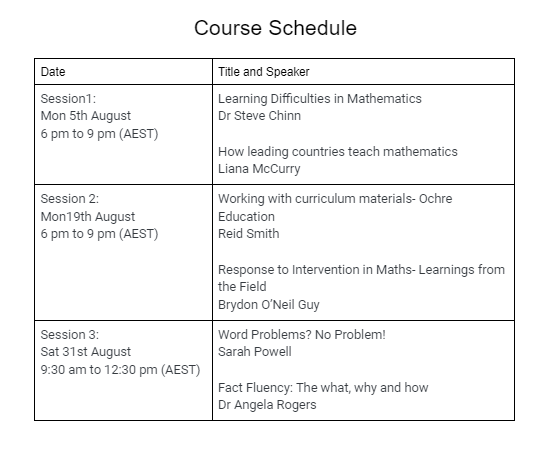
Presentation Descriptions
Learning Difficulties in Mathematics (Dr Steve Chinn)
Dr Steve Chinn will provide an overview of the difficulties children can face when learning mathematics, the areas to assess when looking at basic number sense and a conceptual and developmental approach to teaching baths that can help build understanding and security, hopefully reducing anxiety.
How Leading Schools Teach Mathematics (Liana McCurry)
Embarking on a Churchill Fellowship in 2023 to investigate best practices in mathematics teaching at a primary school level, Liana visited 6 countries in 7 weeks: Singapore, Japan, Finland, Estonia, Canada, USA. The presentation focuses on her experiences and looks at the commonalities and differences between primary mathematics education in Australia and abroad.
Working with Curriculum Materials – Ochre Education (Reid Smith)
This presentation will introduce the curriculum sequencing and high-quality lesson materials created by Ochre Education. Time will be spent discussing the development of a coherent curriculum within and between year levels, as well as the key principles which underpin the Ochre materials. Finally, the session will discuss ways in which the materials can be used to support classroom teaching.
Response to Intervention in Maths- Learnings from the field (Brydon O’Neill-Guy)
This session will cover the journey of establishing an evidence-based Maths Intervention Program within a government primary school context. Useful for school leaders, teachers, intervention teachers and education support staff, Brydon will share her learnings about what works (and what doesn’t!) in setting up data-driven systems of support, all underpinned by the theoretical frameworks of Response to Intervention (RtI), Cognitive Load Theory, Explicit Direct Instruction and Direct
Word Problems? No Problem! (Sarah Powell)
Setting up and solving word problems is tricky for many students! In this session, we will review effective word-problem strategies. First, we’ll highlight common attack strategies which provide students with a process for approaching word problems. Then, we’ll provide examples of common schemas featured in many word problems. These schemas represent the conceptual foundation of a word problem. When students use an attack strategy combined with schemas, this approach can make word-problem solving more accessible for students!Instruction.
Fact Fluency: The what, why and how (Dr Angela Rogers)
In this session, Dr Angela Rogers shares the importance of developing a strategic and targeted approach to mathematics fact fluency with all students. She will start by exploring the research that underpins fluency development. Angela will explore its place in the curriculum and the impact a concentrated approach can have on student confidence, motivation and achievement in mathematics. You will walk away from this session with insights and practical ideas that will support you in implementing a research-informed approach towards fluency development with your students.
